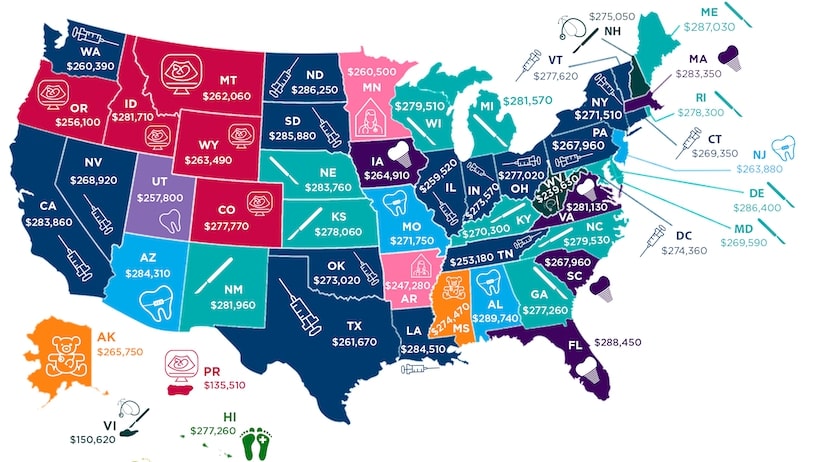Technology has changed the entire business landscape around the world. No one wants to miss an opportunity in today’s fast-paced world and for this very reason switching jobs is a common practice. Know the best time to switch jobs in the article.
Everyone wants to land a higher paying job with job security and growth prospects, however, decision making may not be that easy when an opportunity knocks. The most common doubt about switching jobs is the timing, i.e. when is the best time to switch the job.
There can be various reasons for you to think about changing your current job, but knowing when is the best time to switch jobs is equally important.
Honestly, there is no one clear answer to this question and the best time to change jobs depends on your very own situation, but considering some important parameters, you can take a calculated risk.
This article will discuss the factors to consider when switching a job. If most of these conditions are favorable to you, it’s certainly your time to step ahead and change the job.

Determine Your Exact Reason for Job Switch
Everyone has their own reasons to change jobs and those reasons are valid one way or another. But when you are not sure if this is the right time to change the workplace, find your true reason for changing your current job.
You must change the job if;
- You are underpaid and you have found a well paying opportunity.
- Your skills and expertise is not being used to its fullest and you have found a job where you can have more exposure to grow to the next level.
- You are uncomfortable with the type of work assigned to you, i.e. either it is not your domain or not what you love doing and the situation is negatively impacting your overall well being.
On the other hand, you should refrain from switching the job if;
- You have a bad boss; instead of complaining, work on understanding his position and his expectations from his team and deliver accordingly.
- You have work overload; know the fact that workload is your opportunity to grow to the next level.
- It’s not an ideal location; it doesn’t really matter if you plan an effective commute.
- You just need a change; you may want to take a few days off and get back to work if you want a fresh push, job change won’t serve the purpose.
Consider Both; the Personal & the Professional Parameters
Personal aspects are often overlooked in professional decision making like switching jobs. People mostly make decisions on monetary grounds and consider professional growth aspects.
So, do ask yourself, “How happy are you in your current job? “. It may sound a bit idealistic, but this is very important because you are spending half of your day at that place and it makes the biggest difference, i.e. whether you are enjoying half of your day or you are just screwed!
Your job should be motivating you enough to get out of bed every morning and head to work—happily. If you have such a job in hand and another opportunity knocks, compare them both on this very parameter.
On the other hand, if you are not really loving your work and an opportunity comes that is something you would be happy in doing, it’s time for the switch!
Also consider the fact that shifting jobs can be quite unsettling, i.e. new people, new responsibilities, new schedules, and new travel times due to location. So, when you find a job that brings the best balance of personal and professional growth, consider the transition elements and prepare accordingly.
External Environment That May Affect Your Decision
So far we have discussed the possibilities from a personal and professional growth point of view, monetary benefits, career advancement, physical and mental well-being, etc. And in fact, if you are in a situation where the new opportunity is more promising than your current job, or you happen to find a low stress high paying job, the shift should be made as early as possible.
However, there may be situations when it’s the opposite case, i.e. your current job is amazing but you must make a faster move due to some external reasons, i.e. your company is losing revenues, the startup you are working with is failing, declining market share, poor financial statements or bad leadership decisions, etc.
Well, ethically you should stand by a sinking ship, but it may not be the best strategy if you are the bread earner for a family and others are dependent on your salary in some way.
Compare the potential of your current employer and the potential of the employer offering you a new opportunity and decide accordingly. If you see any of the warning signs discussed earlier, start preparing for the move as early as possible.
Be Cautious When Switching Jobs
Switching jobs as discussed above is inevitable in many cases, however, you must also consider some drawbacks of switching jobs.
If you have a chronic/excessive job switching history on your resume, it can reflect badly on your record and portray you as inconsistent, and or untrustworthy (at times). This may affect your employment chances in the future. If you have recently moved to a new job and you have a history of shifts, it may be the best idea to stay in your position for a while and avoid further moves.
The Bottom Line
When should you switch a job is a question that doesn’t have a definite answer. However, evaluate your situation on the basis of the factors discussed above and you will have your answer.
If you honestly don’t see a future for yourself in what you are doing, you are underpaid and overloaded, your current job is doing you harm in terms of physical and mental health, your current employer has some warning signs, and you have found an opportunity that resolves these issues, it’s surely the best time to switch jobs.








